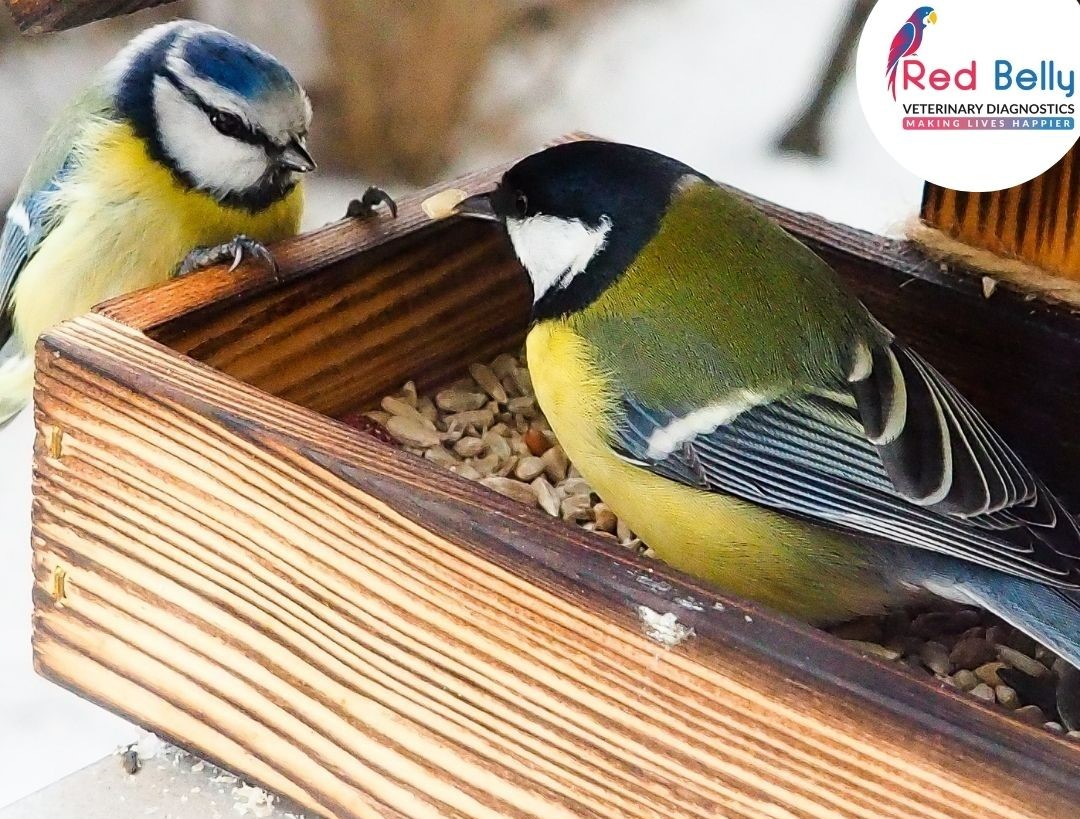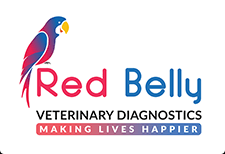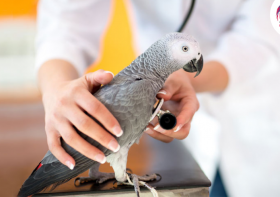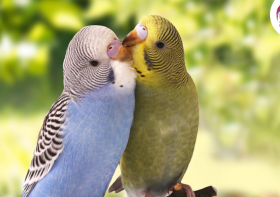What To Do If Your Pet Bird Is Vomiting Or Regurgitating?

Planning to adopt a small feathery roommate to keep you company? Well, what if one day you find them regurgitating or vomiting? Do you have the specific knowledge on what to do and how to take care of certain situations? Do not sweat it out as this blog will guide you properly on what to do when such instances occur.
Adopting chirpy friends is a fun activity until they undergo certain difficulties. Unlike big pets, birdies are delicate to hold and treat them. Every process requires a lot of concentration, patience and dedication. A small mishandling can cause a lot of damage and may even turn heartbreaking in worst case scenarios. So how to deal with the problems of vomiting or regurgitating in your bird? Before we move forward, you need to understand what the term regurgitating means. Regurgitating is actually a process of birds throwing up little amount of foods with the intention to feed their loved ones or the baby chicks. It is considered as one of the most perplexed behaviour among the birds. Do not get scared, as it is highly common and pretty normal. At times, they start doing it in early days as maternal instinct kicks in. However, vomiting is definitely something to be worried about which needs to be addressed as soon as possible.
Let’s jump on to some common questions like, why do birds regurgitate or vomit? Starting with the basics; Regurgitating or regurgitate is a natural behaviour that one can observe in bird. It’s related to bird parenting and you can understand that this process in in action when a bird bob it’s head and stretches out it’s neck. The food produced is undigested to feed the newbies. They do not show any sign of sickness or distress. You can observe this behaviour of regurgitating in birds in their nest itself. For example, if you see a hen sitting on her eggs for incubation, you will find the father of those lil chicks regurgitating a number of times just to feed the mother hen. After the eggs get hatched, and the chicks come out, they solely depend on their parents to feed them. The adults will keep regurgitating to feed their new off springs as it is the most efficient way. The food is partially warmed up since it’s not fully digested and is highly nutritious for the lil ones. Regurgitating can be also taken as a way of mating as it expresses that the birds are “interested” in each other. It is a highly common behaviour in courting among birds. They do it on their favourite birds or even toys to express their interest. Do not be concerned if your bird regurgitates on you since it is a sign of affection.
Coming to the next important part, you need to understand that your bird won’t regurgitate every time. Look out for them in case they are vomiting as it is not a healthy sign. If you find your bird vomiting often, you need to understand that it is suffering from a certain sickness or maybe parasites.
As much as regurgitating is important, vomiting is something that you need to be alert about. It is not at all easy distinguishing between vomiting and regurgitating. Now the question that arises is, if it is difficult then how will we understand? Always look out for the behaviour in your feathery pets. A true regurgitating is not at all violent or stressful. It happens and comes naturally. However, a bird that happens to vomit, will flick it’s head very fast and throw up the partially digested food. You may find the remains in the side of your pet’s cage or even smothered with their feathers and stuck on food. Regurgitating food is a very precise manner, but vomiting in birds is very messy. The aim while regurgitating is better than vomiting. So, how is vomiting caused? Well, here are a few reasons listed that why this mishap occurs:
- Certain kind of infections that can be viral, fungal, parasites, bacterial, etc. Some common issues are candida and tapeworm.
- Overfeeding or dietary issues like too much consumption of vitamins like A, D or E and iron.
- Certain diseases in their kidney, heart, liver or diabetes and septicaemia.
- Drastic change in diet.
- Food poisoning due to certain plant, pesticide or other products consumption.
- Allergies by food.
- Reactions by drug.
- Blockage in the gastrointestinal part.
- Stress in psychological form due to change in the environment.
What can you do to prevent such drastic problems? Here is a list of solution that you can follow for the better health of your chirpy friend:
- Medication for treating any inner or underlying disease.
- Changing the diet for your pet.
- Frequent appointments in the Diagnostic lab near you for check ups.
- You can take your pet to your nearby vet for surgery of blockages.
- Providing the right amount of diet to your pet based on their size and age.
- Monitoring your pet and it’s surrounding for effective results and observations.
At times, the problem may turn out to be benign but it’s better to be on the safe side by contacting your nearby vet if you feel that your pet is acting suspicious.
Deprecated: ltrim(): Passing null to parameter #1 ($string) of type string is deprecated in G:\PleskVhosts\spinzsuntanremover.com\redbellydiagnostics.com\blogs\wp-includes\wp-db.php on line 3031
Deprecated: Creation of dynamic property WP_Term::$object_id is deprecated in G:\PleskVhosts\spinzsuntanremover.com\redbellydiagnostics.com\blogs\wp-includes\class-wp-term.php on line 198
Deprecated: Creation of dynamic property WP_Term::$object_id is deprecated in G:\PleskVhosts\spinzsuntanremover.com\redbellydiagnostics.com\blogs\wp-includes\class-wp-term.php on line 198
Deprecated: Creation of dynamic property WP_Term::$object_id is deprecated in G:\PleskVhosts\spinzsuntanremover.com\redbellydiagnostics.com\blogs\wp-includes\class-wp-term.php on line 198
Deprecated: Creation of dynamic property WP_Query::$comments_by_type is deprecated in G:\PleskVhosts\spinzsuntanremover.com\redbellydiagnostics.com\blogs\wp-includes\comment-template.php on line 1525




Leave a Reply